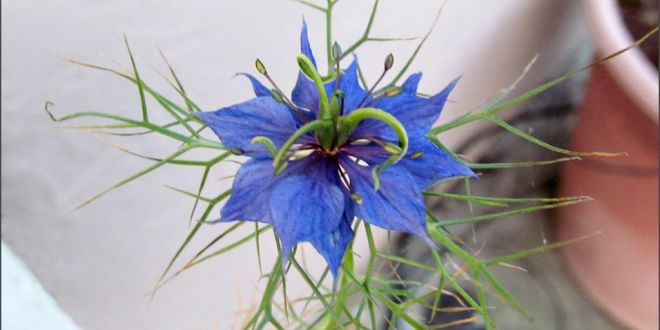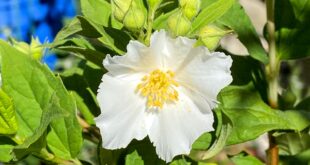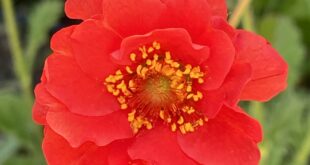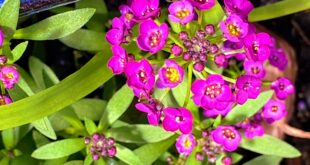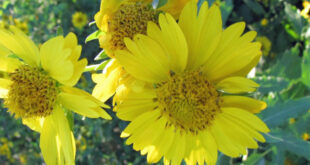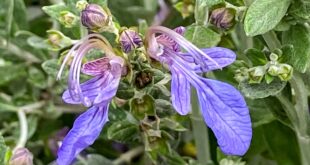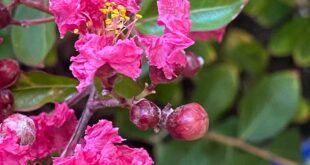Love-in-a-mist (Nigella damascena) is a charming old-fashioned annual in the buttercup family (Ranunculaceae) that blooms in spring and early summer. One of about 15 species in the genus Nigella, love-in-a-mist is native to southern Europe and northern Africa. In its native habitat, this plant grows in fields, along roadsides, and in rocky or waste ground. The genus name Nigella comes from the Latin “niger” (which means black), and refers to the plant’s intense black seeds. The aromatic seeds have been used for culinary and medicinal purposes (particularly in Turkey, the Middle East and India), although this species is inferior to black cumin (N. sativa), whose seeds develop a slightly bitter, oregano-like flavor and aroma when ground or chewed.
Love-in-a-mist is a small to medium-sized plant that grows 15 to 24 inches high and up to one foot wide (if not crowded). Plants have finely cut, bright green leaves that resemble dill leaves. Light-green, lacy, finely divided threadlike bracts form the “mist” surrounding the plant’s jewel-like flowers. Love-in-a-mist flowers are typically bright blue to very pale blue, but sometimes may be white, pink, or lavender. Each flower is 1½ inches across, with five large, petal-like sepals and small, deeply-divided petals hidden beneath the flower’s stamens. The flowers are followed by attractive, balloon-shaped “seedpods” (actually an inflated capsule composed of five fused true seedpods). These “seedpods” are up to two inches long, and green with purple or bronze stripes.
There are several named cultivars of love-in-a-mist. The cultivars have larger flowers than normal (often with double flowers having extra rows of sepals), and come in a wider range of colors than the species (which is typically blue). Look for common cultivars at your local garden center.
Details
Genus: Nigella (ny-JELL-luh) (Info)
Species: hispanica
Category: Annuals
Height: 12-18 in. (30-45 cm)
Spacing: 3-6 in. (7-15 cm)
Hardiness: Not Applicable
Sun Exposure: Sun to Partial Shade
Danger: N/A
Bloom Color: Pink, Rose/Mauve, Magenta (Pink-Purple), Light Blue, Medium Blue, Dark Blue, Blue-Violet, Violet/Lavender, Purple, White/Near White
Bloom Time: Late Spring/Early Summer, Mid Summer, Late Summer/Early Fall, Mid Fall
Foliage: Herbaceous
Other details: Average Water Needs; Water regularly; do not overwater
Soil pH requirements:
6.6 to 7.5 (neutral)
Patent Information: Non-patented
Propagation Methods:
From seed; direct sow outdoors in fall
From seed; winter sow in vented containers, coldframe or unheated greenhouse
From seed; sow indoors before last frost
From seed; direct sow after last frost
Seed Collecting: Allow pods to dry on plant; break open to collect seeds, Properly cleaned, seed can be successfully stored
Read more: http://davesgarden.com/guides/pf/go/19/#ixzz3Gp31iOY1
